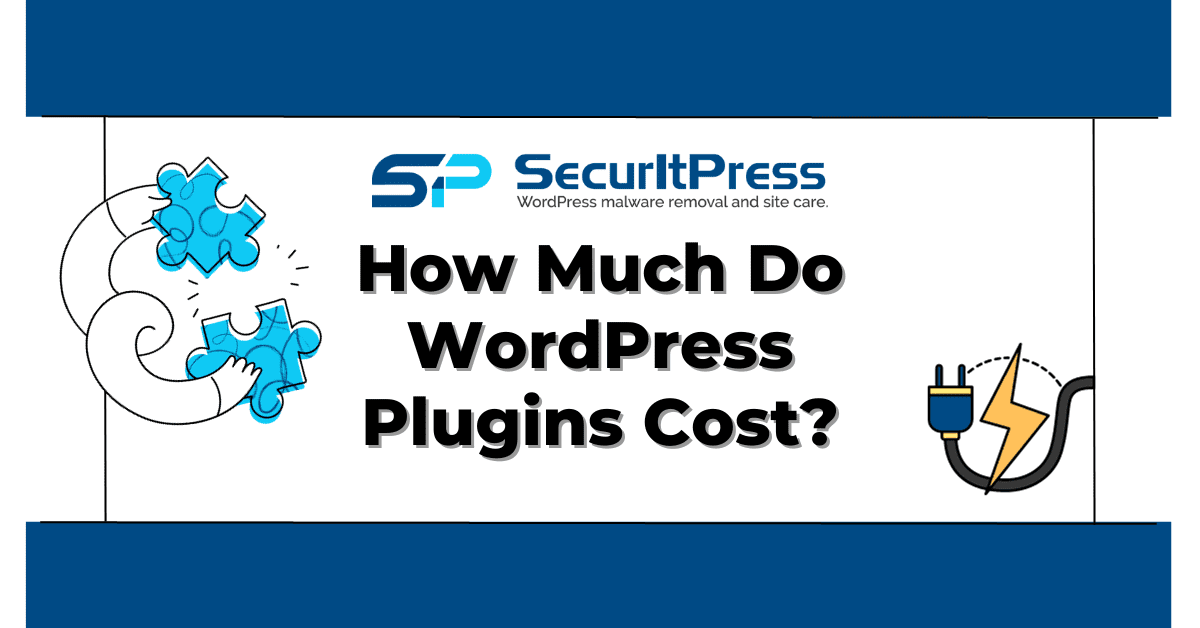Plugins are convenient and helpful if you have a website. So, you may be wondering, “How much do WordPress Plugins cost?”
WordPress plugins are instrumental in extending the functionality and features of your WordPress website. These plugins can be free or premium (paid), offering diverse solutions to meet your website’s unique requirements. In this article, we will delve into the world of WordPress plugins and discuss the factors that influence their cost.

Free WordPress plugins
Free WordPress plugins are readily available in the official WordPress Plugin Directory. These plugins can be installed directly from your WordPress dashboard, allowing you to enhance your website without any direct monetary investment. While free plugins are enticing, it’s important to consider their limitations and potential trade-offs. Additionally, some free plugins may offer optional donations or upsell within their interfaces to support the developers.
How Much Do WordPress Plugins Cost? Premium WordPress plugins
Premium WordPress plugins, on the other hand, are developed by third-party companies or developers and require a monetary investment. These plugins often come with dedicated support, advanced features, and regular updates. The pricing models for premium plugins can vary, including one-time purchases, annual subscriptions, or lifetime licenses. The cost of premium plugins is influenced by factors such as functionality complexity, development resources required, and market demand.
Factors Influencing Premium WordPress Plugin Prices
1. Functionality complexity: The more advanced and complex a plugin’s features are, the higher its price will be. Plugins that provide unique solutions and specialized functionalities often come with a premium price tag.
2. Development resources required: The cost of developing a plugin is directly proportional to the amount of time, effort, and resources invested in it. A plugin that requires extensive coding, testing, and debugging will typically be more expensive than one that is simpler and easier to develop.
3. Market demand: The popularity and demand for a plugin can also impact its price. Plugins that are in high demand and have a large user base tend to be priced higher than those with a smaller following.
4. Support and updates: Premium plugins often come with dedicated support and regular updates, which require ongoing maintenance and resources. The cost of maintaining and improving a plugin can also influence its price.
5. Licensing model: The pricing model for premium plugins can vary, including one-time purchases, annual subscriptions, or lifetime licenses. The licensing model can impact the perceived value of the plugin and ultimately affect its price.
Price Range and Examples
The price range of premium plugins is wide and can cater to various budgets. Simple plugins may start from just a few dollars, while feature-rich or specialized plugins can range from tens to several hundred dollars. Here are some examples:
- SEO Plugin Pro: $49 per year – Provides comprehensive search engine optimization features and analysis tools for your website.
- eCommerce Deluxe: $199 one-time purchase – A powerful plugin that transforms your WordPress site into a fully-fledged online store with advanced functionalities.
- SecurityGuard Pro: $79 per year – Offers robust security features, malware scanning, and firewall protection for your website.
Additional Costs to Consider
When considering premium plugins, it’s essential to account for any additional costs that might be associated with their usage. Some plugins offer add-ons or extensions, which may come at an extra cost. Additionally, certain premium plugins require ongoing subscription fees for updates and support. However, many premium plugin developers also provide bundled pricing or discounts for multiple site licenses or developer licenses.
Free vs. Premium Plugins
Both free and premium WordPress plugins have their own advantages and limitations. Free plugins can be a great way to start enhancing your website without any direct monetary investment. However, they may have limited features or support; some may come with optional donations or upsells. On the other hand, premium plugins offer advanced features, dedicated support, and regular updates but require a monetary investment. When deciding between free and premium plugins, it’s important to consider your website’s unique requirements and budget.

How Much Do WordPress Plugins Cost? Conclusion
Understanding the cost of WordPress plugins is crucial when building a website. While free plugins are enticing, premium plugins often provide enhanced functionality, dedicated support, and regular updates. You can decide which plugins best suit your needs and budget by considering factors such as functionality, reputation, and the value provided. Remember, it’s not just about the cost but also the value and benefits they bring to your WordPress website.
Regardless of what plugin you use, SecurItPress is here to assist you with any of your WordPress development needs!

